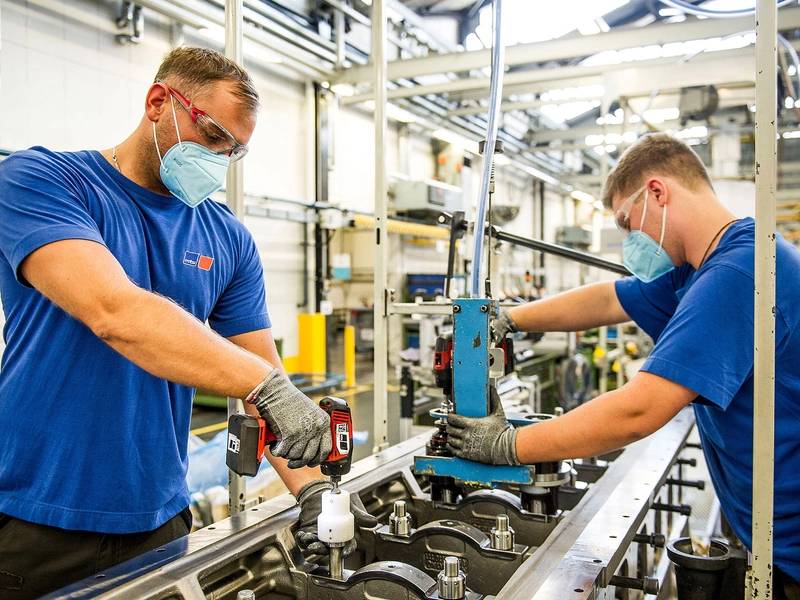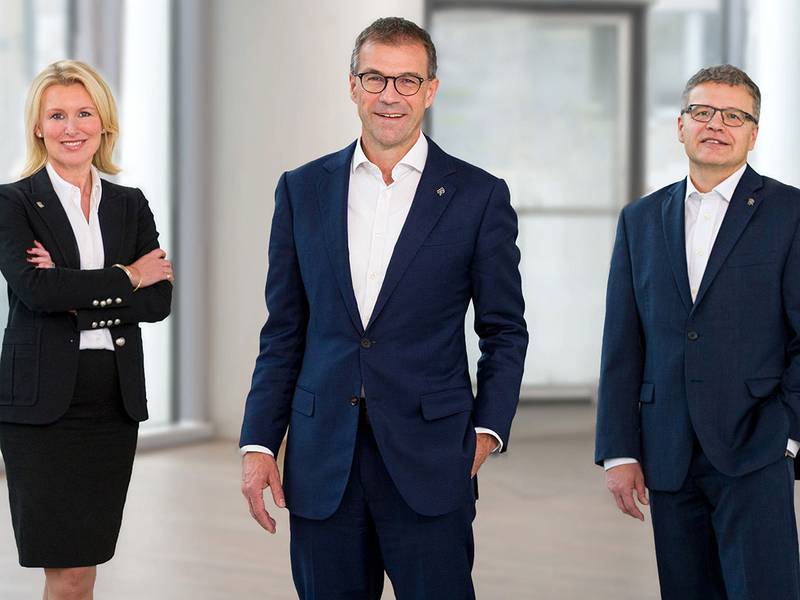Rolls-Royce's Power Systems Profitable Despite 17% Revenue Plunge
Rolls-Royce's Power Systems division has ended the 2020 financial year with an underlying operating profit of $247.3 million despite suffering a 17% drop in underlying revenue to $3.8 billion. This corresponds to an underlying operating margin of 6.5% (2019: 11.5%). As a result, Power Systems, with its product and solutions brand mtu, remained in the black during the 2020 pandemic year.
Power Systems is taking advantage of the crisis to prepare for a shift in its business model towards integrated solutions for drive-power and energy needs in the post-COVID era – with special focus on sustainable, climate-friendly technologies. This is being aided by a reorganization featuring special business units for “Sustainable Power Solutions” and for China as well as investments in new technologies and site facilities.

- Profitable despite revenue hit
“The COVID-19 crisis hit us hard, but we are still profitable, albeit not as profitable as in previous years. However, this is proof positive of the resilient nature of our business,” said Andreas Schell, CEO of Rolls-Royce Power Systems. Profit in the commercial marine segment was adversely affected by the pandemic-related collapse in tourism, among other factors. Shipyards closed down temporarily, hitting the yacht business, and economic uncertainty in many sectors of the economy led to a slowdown in capital investment and, in particular, shelving of plans to purchase power generation solutions. Public sector sales remained stable.

“The relatively good result for the year is largely down to a strict cost and liquidity management regime which we have applied throughout to mitigate the impact of the drop in revenue,” emphasized CFO Louise Öfverström. The company says it saw signs of an initial recovery in the second half of the year, however extensive lockdowns in many parts of the world since then continue to dampen customers' willingness to invest. Öfverström continued: “We expect an improvement in order intake during the first half of 2021, converting into a recovery in sales from the second half of the year with revenues returning to approximately 2019 levels in 2022.
Despite the financial challenges presented by COVID, Power Systems acquired three businesses last year in order to be able to ramp up activities as a solution provider to customers in a variety of markets. In 2020, Power Systems acquired Kinolt, a Belgian company making uninterruptible power supply systems using rotating flywheels, and Servowatch, a British ship automation manufacturer, as well as taking a majority stake in Qinous, now Power Systems’ microgrid competence center.
The companies are being integrated into the Power Systems division. “The Rolls-Royce Group enabled us to make these investments in our future in 2020 despite exceedingly difficult economic conditions. This illustrates the great confidence the Group has in us, particularly with regard to climate-friendly and environmentally friendly solutions,” continued Schell.
- Investmenting through a Pandemic
The company will be continuing down its transformation path in 2021 with selective investment in climate-friendly products, fully integrated solutions and existing site facilities, as well as continuing to drive the company's established lines of business. “This year and last year, the larger-scale investments we made alone in extending our production sites up to a high double-digit-million amount. This is another way we are using the time of crisis to emerge stronger,” said Dr. Otto Preiss, member of the board for R&D and operations.
Production of the mtu EnergyPack battery storage containers is being expanded to over 50 containers per year at the company's Ruhstorf facility in Lower Bavaria. In just 12months, Power Systems has already made its mark on the market for renewable and smart energy solutions with interesting orders, for example in the South Pacific, Costa Rica, Australia and Norway.
- Hydrogen, the fuel of the future
In Friedrichshafen, the company is working hard on ways to exploit hydrogen as the fuel of the future: “We're convinced that hydrogen has a key role to play in the green energy revolution,” stressed Schell. A demonstration emergency power generator using fuel cell technology is expected to go live in the first half of the year. Developers are also working on hydrogen engines and engines using methanol based on climate-neutrally produced hydrogen.
“These major investments in our future are being funded by proceeds from today’s core business. It is the mainstay of our division, which is why we continue to invest heavily in it,” said Schell. The materials management center in Kluftern near Friedrichshafen will be expanded this year and next. Among other things, the Friedrichshafen assembly line for MTU Series 2000 engines is to be moved temporarily to the 10,000 sqm facility, which has already been approved, to allow refurbishment of the existing plant. Other major investments include a machining center for large engine housings, completion of the plant expansion in Mankato, and the microgrid at the Aiken plant (both in the US), hydrogen infrastructure for the Friedrichshafen and Augsburg plants, and test stand refurbishments.
